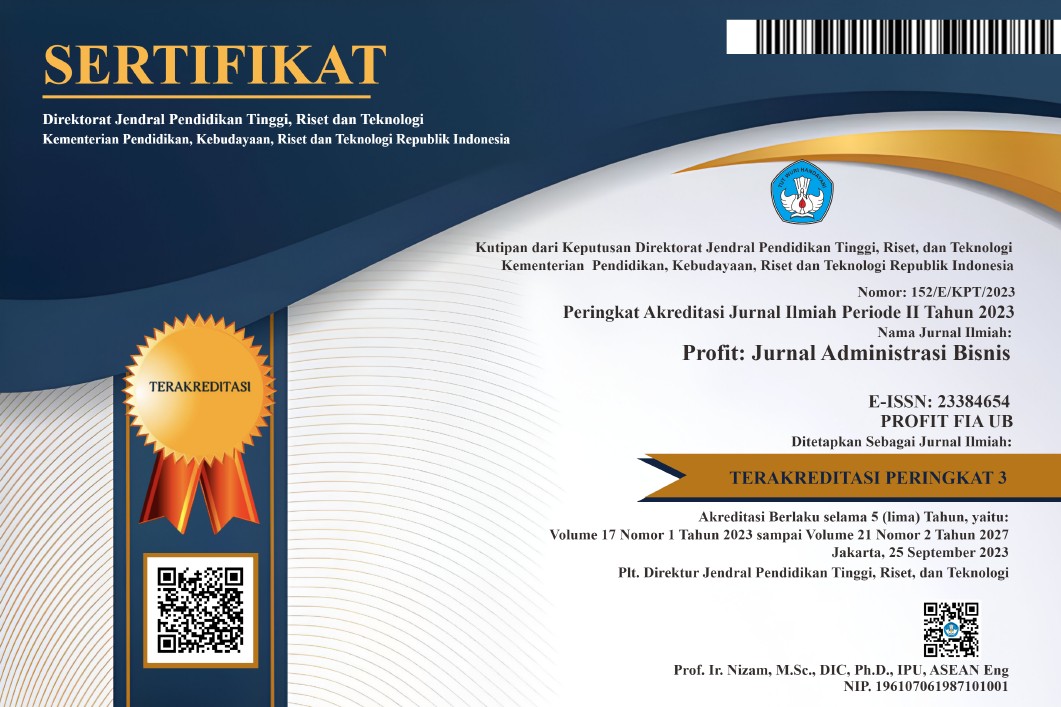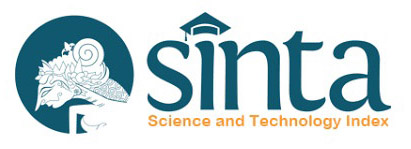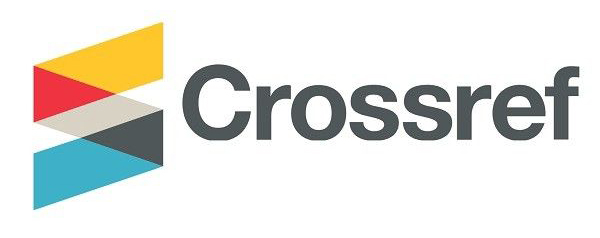IMPLIKASI PERENCANAAN PAJAK DAN BEBAN PAJAK TANGGUHAN TERHADAP MANAJEMEN LABA PERUSAHAAN
DOI:
https://doi.org/10.21776/ub.profit.2019.013.01.3Keywords:
Profit Management, Tax Planning, and Deffered TaxAbstract
Basically, such practice is not in the favor of both the company and the emiten, for the published information is unreliable thus threatens the sustainability of the company. Tax planning is a means of tax management used for estimating the amount of tax that needs to be paid and other efforts to avoid tax reliability. This research builds upon tax planning motives that drive companies to save on tax responsibility that is an illegal action. Therefore, the management of a company will apply different tax management techniques to achieve its target. In addition to tax planning, tax responsibility also determines the practice of profit management. In order to save or defer tax payment, a company tends to submit a lesser profit report. This is done by manipulating the tax responsibility, thus, allow to conduct a profit management. This research aims at testing the impact of tax planning and tax responsibility on profit management. The research adopts a qualitative approach in reviewing annual reports of major public companies registered to the Indonesian Stock Exchange 2016-2017. It shows that tax planning and tax responsibility do not hold significant correlation on a company’s profit management.
Â
Â
References
Aditama, 2014. “Pengaruh Perencanaan Pajak terhadap Manajemen Laba Pada Perusahaan Nonmanufaktur yang Terdaftar Di Bursa Efek Indonesiaâ€. MODUS Vol.26 (1): 33-50, 2014
Aristanti Widyaningsih, Cynthia Ayu Purnamawati 2012 “Pengaruh Beban Pajak Tangguhan dan Profitabilitas terhadap Manajemen Laba†Universitas Pendidikan Indonesia.
Erly Suandy, Perencanaan Pajak, Edisi 1, 2001, Jakarta: Salemba Empat.
Ghozali, Imam, 2009. Aplikasi Analisis Multivariate Dengan Program SPSS, Edisi Keempat, Penerbit Universitas Diponegoro.
Ikatan Akuntan Indonesia. 2009. Pernyataan Standar Akuntansi Keuangan. Penerbit: Salemba Empat.
Kiswara, Endang, 2007. Aktiva Pajak Tangguhan, Edisi Pertama, Wacana Suara Merdeka Semarang.
Ningsih, Hairu, 2007. Hubungan Antara Manajemen Laba, Good Corporate Governance, dan Struktur Pengendalian Intern Teerhadap Perencanaan Audit. Jakarta.
Philips, JM., Pincus dan S. Rego, 2003. Earnings Management: New Evidence Based on Deffred Tax Expense. The Accounting Review. Vol 78:491-521.
Sulistyanto, H. Sri. 2008. “Manajemen Laba, Teori dan Model Empiris. Jakarta: Grasindo.
Sekaran, Uma. 2003. Research Methods for Business: A Skill Building Aproach, New York: John Wiley and Sons, Inc.
Sugiono, 2009. Metode Penelitian Bisnis (Pendekatan Kuantitatif, Kualitatif, dan R&D). Bandung: Alfabeta.
Suranggane, 2007. Analisis Aktiva Pajak Tangguhan dan Akrual Sebagai Prediktor Manajemen Laba: Kajian Empiris Pada Perusahaan Manufaktur yang Terdaftar Di BEJ. Jurnal Akuntansi dan Keuangan Indonesia Juni 2007, Vol.4, No. 1, hal. 77-94.
Wild, John J. Subramanyam, dan Robert F. Helsey. 2005. Financial Statement Analysis. Edisi: 8. Buku Satu. Jakarta: Salemba Empat.
Yulianti. 2005. Kemampuan Beban Pajak Tangguhan Mendeteksi Manajemen Laba. Jurnal Akuntansi dan Keuangan Indonesia.
Downloads
Published
Issue
Section
License
The copyright of the received article shall be assigned to the journal as the publisher of the journal. The intended copyright includes the right to publish the article in various forms (including reprints). The journal maintains the publishing rights to the published articles.

This work is licensed under a
Creative Commons Attribution-NonCommercial 4.0 International License

















